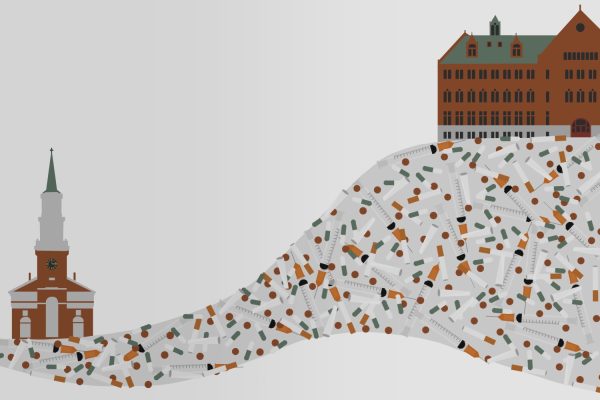Letter to the editor: Rationalizing Gaza issue
Dear editor,
Last week in the Cynic, a self-proclaimed historical and political context of the conflict in Gaza titled Sympathy for Palestine, left me with some biting questions.
Why on earth would America and many other countries in the free world support Israel given Nolans brutal and dismal description of a decades-long occupation of Gaza which denies Gazans medicine, food and basic human dignity?
Another question is why Barack Obama and over 57 percent of Americans, according to a recent CNN poll, support Israels right to defend itself? Is 57 percent of America blind, racist or just plain uninformed?
A more plausible answer is that Nolan Rampy is not telling us the true story.
Mr. Rampy, Gaza is not occupied. As of 2004, former Prime Minister Ariel Sharon enacted the disengagement plan in which the Israeli military forcibly uprooted thousands of Jewish families from a previously unsettled area in the vicinity of the Gaza Strip known as Gush Katif. From 2004 until 2006 there was no embargo or siege on Gaza and not one Jew living there.
Nolan correctly stated that a siege and embargo were placed on Gaza in 2006, but since context is so important to him, I feel inclined to provide some. In 2006, Hamas, an internationally recognized terrorist organization, was democratically elected in Gaza. Hamas then proceeded to, not so democratically, consolidate their hold over Gaza by slaughtering their opposition through beheadings, firing squads and pushing them off the roof.
After taking credit for hundreds of suicide bombings against Israeli civilians, Israel took Hamas at its word and did what any sane sovereign country would do protect its citizens by enacting a blockade.
Efforts were made to safeguard civilian casualties by delivering aid, dropping millions of leaflets, making phone calls, sending texts to Gazans in Arabic and calling off missions when it became evident that a civilian could be killed.
Since 2001, approximately 15,000 rocket attacks have been fired from Gaza into Israel. In 2005, right after Israel withdrew entirely from Gaza but before the blockade, the number of rocket attacks saw a 346 percent increase.
My cousins, who have five children in all, live in one of the cities constantly hit by rocket fire. The oldest of their children is 12 and the only memories she has are of a time of air raid sirens and running to the bomb shelter. These incidences continue as a part of her daily life.
Neither she nor the other children and toddlers living in these cities are guilty of any crimes against Gaza and do not deserve to be targeted. The Palestinian children do not deserve to die either, and that is why Israel takes so many precautions to defend them while defending its citizens.
Needless to say, I agree with Nolans title. I feel, as most Israelis do, a profound sympathy for the Gazans. I sympathize with them because they have been hijacked and held hostage by Hamas and used as human shields while rocket launching sites and weapons storage facilities are placed next to schools and in residential neighborhoods.
All of what I have written is what Nolan should appreciate as historical and political context, context that he calls for but fails to provide. Nolan paints the Hamas and Islamic Jihad fighters who are waging a self-proclaimed war on Israel to the detriment of the civilians on both sides of the border as some sort of oppression-fighting heroes. I guess if I could completely make up my own historical and political context I could make freedom fighters and heroes out of Hitler, Assad and Genghis Khan.
Sincerely,
Jeremiah Rozman
Class of 2014






